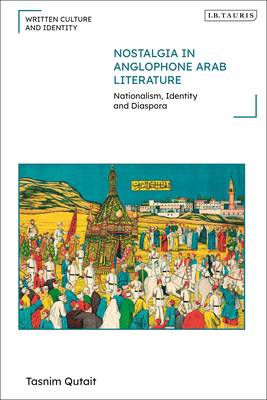
- Afhalen na 1 uur in een winkel met voorraad
- Gratis thuislevering in België vanaf € 30
- Ruim aanbod met 7 miljoen producten
- Afhalen na 1 uur in een winkel met voorraad
- Gratis thuislevering in België vanaf € 30
- Ruim aanbod met 7 miljoen producten
Zoeken
€ 220,45
+ 440 punten
Uitvoering
Omschrijving
Interweaving theories and studies of memory, nostalgia, ruins and archives with the works of Fadia Faqir, Ahdaf Soueif, Jamal Mahioub and others, in this book Tasnim Qutait sheds light on understudied Arab British writers.
Arguing that nostalgia challenges nationalist and political ideologies rather than reiterating them, Qutait uses nostalgia as a concept interlinking loss, memory and trauma. Anlysing both Arabic and English language texts, she questions the binary of negative and positive forms of nostalgia, emerging from its etymology as a sickness in Western tradition, through invoking the multifarious strands related to nostalgic emotion in Arab traditions.
Offering an in-depth engagement with Anglophone Arab fiction in the context of critical and theoretical debates around memory, history and nostalgia, this book bridges the gap between Anglophone and Arabic scholarship, contributing to the ongoing postcolonial and transnational turn in memory studies.
Arguing that nostalgia challenges nationalist and political ideologies rather than reiterating them, Qutait uses nostalgia as a concept interlinking loss, memory and trauma. Anlysing both Arabic and English language texts, she questions the binary of negative and positive forms of nostalgia, emerging from its etymology as a sickness in Western tradition, through invoking the multifarious strands related to nostalgic emotion in Arab traditions.
Offering an in-depth engagement with Anglophone Arab fiction in the context of critical and theoretical debates around memory, history and nostalgia, this book bridges the gap between Anglophone and Arabic scholarship, contributing to the ongoing postcolonial and transnational turn in memory studies.
Specificaties
Betrokkenen
- Auteur(s):
- Uitgeverij:
Inhoud
- Aantal bladzijden:
- 200
- Taal:
- Engels
- Reeks:
Eigenschappen
- Productcode (EAN):
- 9780755617593
- Verschijningsdatum:
- 20/05/2021
- Uitvoering:
- Hardcover
- Formaat:
- Genaaid
- Afmetingen:
- 156 mm x 234 mm
- Gewicht:
- 453 g

Alleen bij Standaard Boekhandel
+ 440 punten op je klantenkaart van Standaard Boekhandel
Beoordelingen
We publiceren alleen reviews die voldoen aan de voorwaarden voor reviews. Bekijk onze voorwaarden voor reviews.








